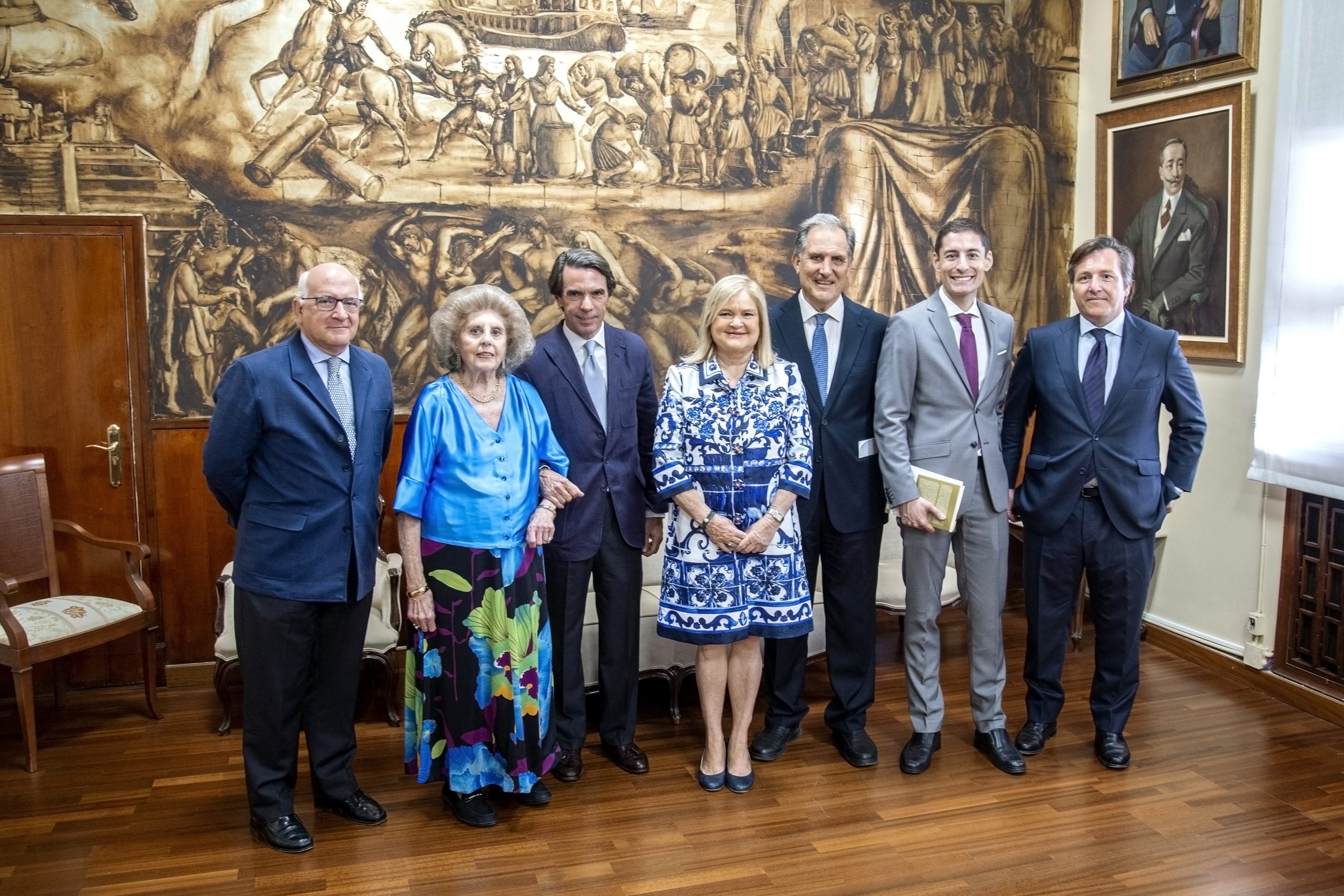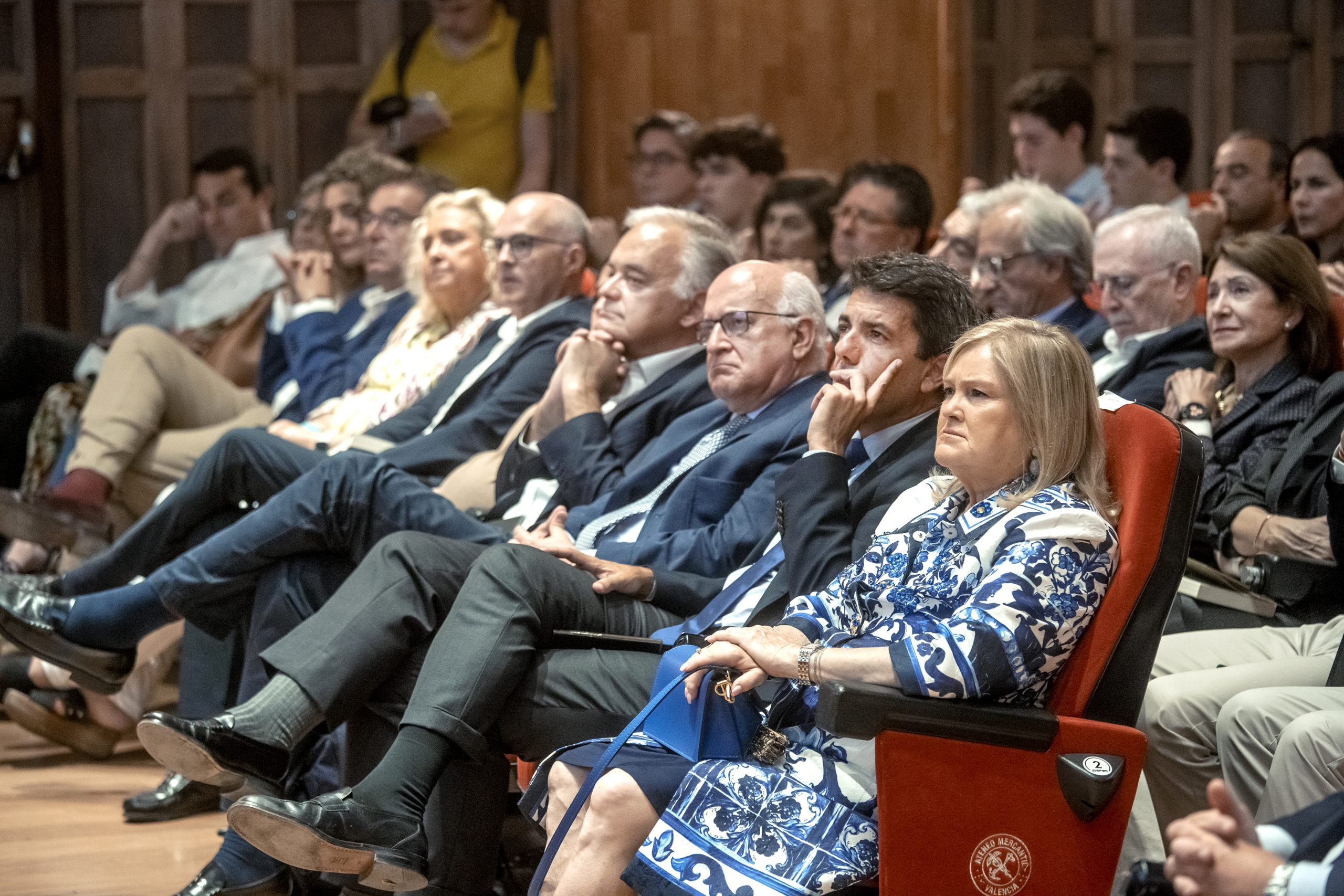PRESENTATION OF RICARDO SAMPER’S BIOGRAPHY IN VALENCIA

Last Tuesday, June 20, Javier Zarzalejos attended, in the company of President Aznar, the presentation in Valencia of the biography ‘Samper, la tragedia de un liberal en la Segunda República’, by Professor Roberto Villa, published by FAES Gota a Gota. The presentation ceremony was held at the Ateneo Mercantil, with the participation of Elena Enguix Samper, Ricardo Samper’s granddaughter, Roberto Villa, author of the book, Federico Martínez Roda, member of the Royal Academy of History, and José Maria Aznar himself. Also present at the event were the next president of the Generalitat Valenciana, Carlos Mazón, and the MEP and deputy secretary general of the Partido Popular, Esteban González Pons.
The political biography of Samper, president of the Government in the Second Republic with the Radical Republican Party, includes the doctrinal contradictions of republicanism in the constituent period of 1931, the insurrectionary episode of 1934 and its double Catalanist and socialist challenge and the unknown exile of the republicans who fled from the “republican zone” during the Civil War; all of them, key aspects of our History in which the figure of Samper was protagonist, and that allow a better understanding of the misfortune of the liberals in the Spain of the 20th century.
In his closing speech, the president of FAES said that “our democracy is based on a constitutional design and a will of concord superior to those of 1931. Its shortcomings are not of factory but of practice”. According to his reflections -alluding to the memory policies in force-, “civil concord does not require coinciding in the same vision of the national past and in the same interpretation of its meaning. But what it does demand is a minimum of good faith in its study and exposition. And, above all, the renunciation of looking for reasons in the past to pit Spaniards against Spaniards today”.
Aznar described the coup against the center-right Republican government in 1934 as “the assault on a legitimate government by the armed uprising of the Generalidad in the hands of the Esquerra and the socialists, promoters of the Asturias revolution” and as the “episode that definitively unbalanced the Republic”.
President Aznar also pointed out as “false to define the Civil War as a confrontation between “democrats” and “fascists”, to look for victimizers only among the latter” and denounced that “there were liberals and democrats victims of the Republicans. This reality is not contemplated by the law of democratic memory. It does not do so because it practices a ‘Francoism in reverse’; recognizing in the laws the capacity to impose, as Francoism did, party narratives”. Adding that this “abuse condemns to oblivion figures like Samper, who overflow Manichean schemes. Because, let us not deceive ourselves, the purpose of a law drafted halfway with the heirs of terror is to delegitimize the adversary heir of the Transition”.
The memory of Ricardo Samper was presented by Aznar as “a vindication of politics at the service of a national purpose”. “Spain did not forget 1931; that is why it got it right in 1978”. And for that reason, “we must regret that some actors of the Transition now buy the extremist story about it; the Chinese tale that defames it as a fraudulent prolongation of Francoism. It is a national disgrace that speeches of pamphlet circulation have made their way to the BOE”.

“The road to democracy undertaken in 1931 was frustrated; it is the responsibility of all of us to continue the path that we took in 1978,” he stressed. In this sense, he recalled that “the democratic experiences prior to 1978 failed due to immaturity and lack of responsible leaders willing to understand each other from the discrepancy through dialogue and respect for the opposite”.
Aznar wanted to conclude his words by assuring that one of the noblest ideals in politics is “to achieve that the ordered set of institutions of a country is such that within it, coexistence can develop normally, legally,” and, quoting Samper himself, he invited the parties to “re-establish their necessary connections with the regime; to learn the teaching and training of the revolutionary movement; to correct their mistakes and to get ready to serve Spain faithfully”.
